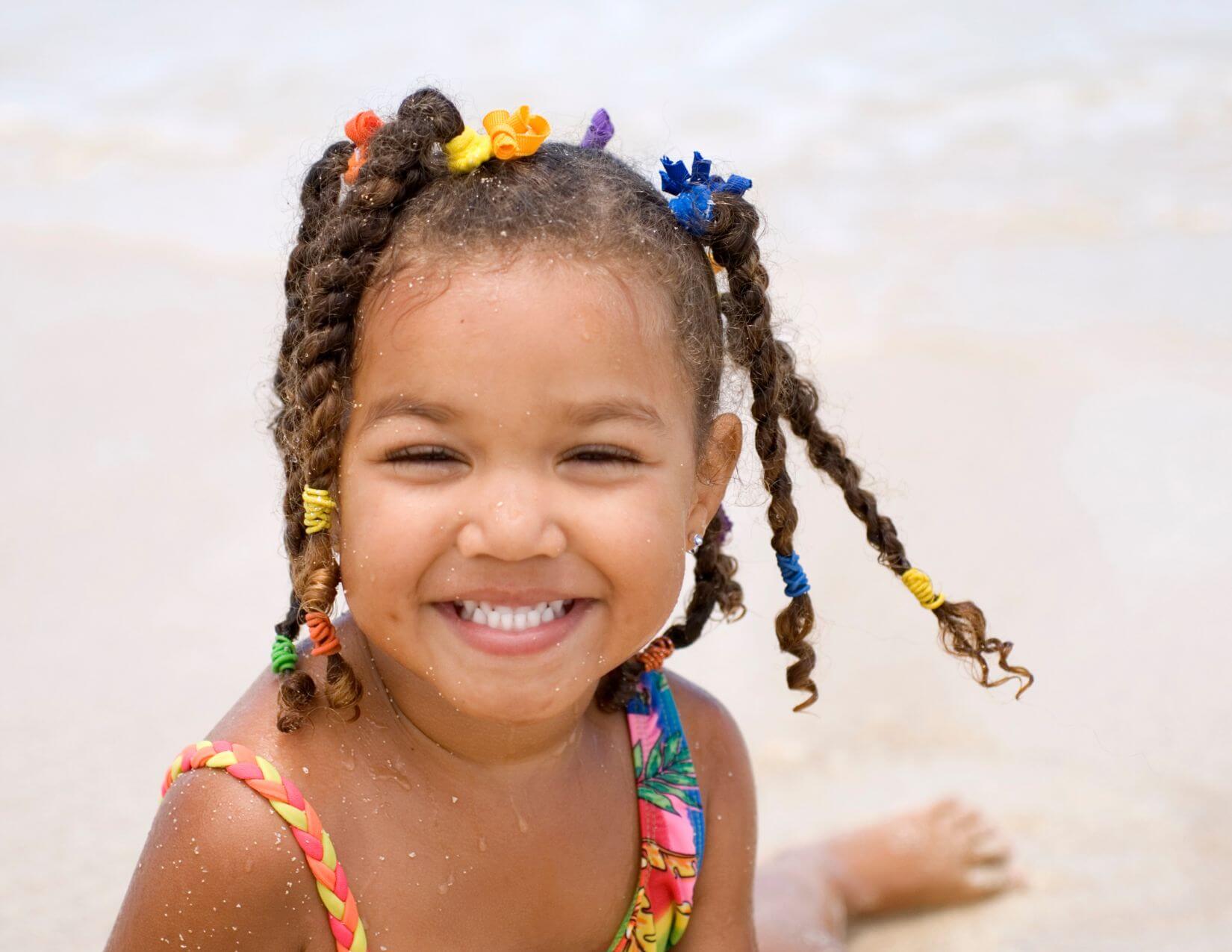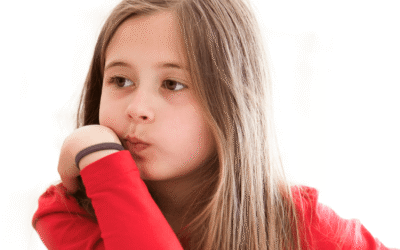Is Your Child Acting Impulsively? Understanding and Supporting Their Journey
As parents, we often find ourselves marveling at the boundless energy and curiosity of our children. However, for some, this energy can manifest as impulsivity – a tendency to act without thinking, even when negative consequences are apparent. Understanding impulsivity isn’t about blaming, but about empowering both parents and children to navigate these challenges.
What is Impulsivity in Childhood?
Impulsivity can be described as the brain’s “go” button overriding its “stop” sign. It’s the inability to pause and consider before acting, leading to behaviors that might seem rash or thoughtless. As the saying goes, “Impulsive children see something and move toward it; they hear something and go for it.” This isn’t a deliberate choice, but rather a wiring style where thinking before acting can be difficult.
Common Signs Your Child May Be Showing Impulsive Behaviors
- “Wait!” is your mantra: You might find yourself constantly using phrases like “No…wait…no,” “Stop!” or “Slow down!”
- The “bull in a china shop” tendency: Impulsive children may accidentally hurt themselves or others, break things frequently, and bump into people often. Their movements can seem clumsy or without foresight.
- Caregiver exhaustion: Spending time with an impulsive child can be draining. Their constant movement and need for intense supervision can leave caregivers feeling depleted.
- All green lights: It can seem like your child only sees opportunities for action, instantly responding to anything interesting without hesitation.
- School struggles: Issues like being out of their seat, rushing through homework, and difficulty waiting in line are common in school settings.
- Peer challenges: Impulsive behaviors can lead to invading personal space, annoying others, and missing social cues, making peer interactions difficult.
- Accidental breakages: A carefully built train set might be dismantled in an instant, not out of malice, but a lack of forethought.
- Rough play: Impulsive children might play too intensely, accidentally running over a friend’s foot or demolishing a block tower. They often feel genuine remorse when someone is hurt.
- Difficulty connecting: Slowing down enough to understand what other children want to do or to engage in a shared conversation can be a significant hurdle, impacting friendships.
- Potential legal trouble (later stages): In adolescence, impulsivity, left untreated, can lead to challenging legal situations that arise from a lack of forethought rather than malicious intent.
Beyond “Just Being a Boy”: Debunking Myths About Impulsive Behavior
Well-meaning friends and family might suggest that impulsive behavior is “normal” or something your child will “grow out of.” While some impulsivity is part of typical development, persistent or severe impulsivity can pose significant risks. In today’s digital age, with cell phones and social media, impulsive children face increased exposure to cyber-bullying, sexting, and other cybercrimes. It’s crucial for them to learn how to navigate these platforms responsibly. The good news is that help is available, and children can learn to manage impulses and make better decisions.
Key Symptoms to Watch For in Impulsive Children
- Acting now, thinking later: A tendency to proceed with actions without considering the consequences.
- Accidental harm or damage: Making mistakes that result in broken items or hurt feelings, followed by remorse.
- Driven by a motor: Constant movement and difficulty stopping or settling down.
- Lack of reflection: Rarely pausing to consider their actions or their impact.
- Unsafe in public: Running off in public spaces like grocery stores or parking lots.
- Frequent risk-taking: Seeming to have little concern for personal safety.
- Bothering others: Being hyper or intrusive, even when others are clearly uncomfortable.
- Overly physical interactions: Enjoying hugs and roughhousing, even with children who don’t reciprocate or enjoy it.
- Uncalculated risks in teenagers: Older children and teenagers may take risks that lead to disciplinary or legal issues.
Understanding the Roots of Impulsivity
Clinically, impulsivity is often described as action without forethought – the inability to inhibit a “prepotent response,” meaning your child struggles to stop themselves from what they automatically want to do.
- Brain wiring and development: A primary factor is often different brain wiring and the immaturity of the brain’s judgment and reasoning centers, which continue to develop until around 23 years old. Some children naturally have less developed impulse control and need explicit teaching to manage their behavior.
- Attention challenges: Impulsive behaviors can be closely linked to attention challenges and a genuine lack of mental brakes. If a child cannot slow down, stop, and think, poor decisions may result. These symptoms of hyperactivity and impulsivity may indicate Attention Deficit Hyperactivity Disorder (ADHD), which can be diagnosed and treated by medical professionals.
- Emotional regulation: Sometimes, impulsive behaviors stem from difficulty managing strong emotions, leading to regrettable actions. Impulsivity alongside irritable mood or frequent mood swings could point to a Mood Disorder.
- Social understanding: Challenges in social awareness, perspective-taking, or understanding – common in individuals with an Autism neurotype – can appear as impulsivity. For example, a child might give an uninvited bear hug because they struggle to read social cues or understand personal space.
- Behavioral patterns: Impulsive children may act without fully grasping the consequences of their actions, such as pushing another child to get to the front of a line.
Effective Strategies for Managing Impulsive Behaviors
Parenting an impulsive child can be tough, but with consistent effort, positive changes are possible. Here are some updated tips for parents:
- Practice self-compassion: It takes time and patience to see improvement. Be kind to yourself through the process.
- Teach delayed gratification: At home, create opportunities for your child to wait for desired items. Reward them for successful waiting. A fun way to do this is by matching their savings account contributions for a desired larger item.
- Implement “STOP AND THINK”: This simple prompt is powerful. When your child approaches a risky situation, remind them to “STOP AND THINK.” Immediately praise or reward them when they successfully pause.
- Engage in games for impulse control:
- Simon says: This game teaches listening and waiting for specific instructions before acting.
- Red light, green light: This classic game explicitly practices stopping, slowing down, and going, which is incredibly challenging but beneficial for impulsive children.
- Cultivate empathy (learning, not punishment): When an impulsive moment occurs, calmly ask your child what happened. They may genuinely not know. Later, when both are calm, discuss how their actions might have affected others. Frame this as a learning opportunity, not a punishment. This is a skill that develops over years.
- Prioritize exercise: Impulsive children need outlets for their energy. Activities like swimming, gymnastics, running, soccer, basketball, or using a trampoline and playground are excellent. Physical activity aids attention, emotional regulation, and sleep.
- Focus on balanced nutrition: Impulsive children can be more sensitive to the effects of sugar. A balanced diet rich in protein, healthy fats, vegetables, and whole grains supports brain function. Sugary snacks, yogurts, or cereals can exacerbate hyperactive and impulsive behaviors. Breakfast, in particular, is a critical meal.
- Embrace rewards: Positive reinforcement works exceptionally well. Reward the behaviors you want to see. Instead of “No TV unless you do chores,” try, “Let’s do our chores to earn screen time.”
- Establish consistent routines:
- Morning routine: Write it out: get up, brush teeth, healthy breakfast. Use a visual chart and reward completion. Allow more time than you think they’ll need.
- Bedtime routine: Keep it consistent, especially on school nights. No screens at least one hour before bed. Have them pack their backpack and prepare for the next day in the same designated spot.
When to Seek Professional Support for Impulsivity
- For very young children: If impulsivity leads to frequent aggression at daycare or preschool, consider ABA Therapy. Your child’s doctor can provide referrals.
- Elementary school age: If impulsivity impacts schoolwork or causes frequent peer conflicts, contact the school counselor and your child’s doctor. ADHD may be an underlying factor, and a diagnosis can lead to appropriate support and interventions.
- High school age: Significant disciplinary issues, inappropriate social media use, or peer interactions demand immediate intervention. Reach out to the school counselor and consider a psychological evaluation for ADHD or related concerns. A 504 Plan or other intervention programs may be beneficial if a diagnosis is identified.
Untreated impulsivity can increase the risk of legal or disciplinary problems. With the right support, your child can develop positive behaviors, manage impulses, and thrive.
Professional Resources on Impulsivity
- ABA therapist: Specializes in behavior treatment and conducting functional analyses to guide interventions.
- Psychiatrist: Can prescribe and manage psychotropic medication for inattention and impulsivity, with stimulant medication often effective for focus and impulse challenges in many children.
- Psychologist or neuropsychologist: Can conduct comprehensive assessments to evaluate impulsive symptoms
Book Resources
- Barkley, Russell A. (2013). Taking charge of ADHD, 3rd edition: The complete, authoritative guide for parents.
- Cook, Julia (2012). Personal space camp.
- Esham, Barbara (2015). Mrs. Gorski, I think I have the wiggle fidgets. (New edition) (Adventures of everyday geniuses.)
- Greene, Ross W. (2001). The explosive child: A new approach for understanding and parenting easily frustrated, chronically inflexible children.
- Kroncke, Anna P., & Willard, Marcy & Huckabee, Helena (2016). Assessment of autism spectrum disorder: Critical issues in clinical forensic and school settings. Springer, San Francisco.
- Papolos, Demitri & Papolos, Janice (2002). The Bipolar Child: The definitive and reassuring guide to childhood’s most understood disorder.
- Siegel, Daniel J. & Bryson, Tina Payne (2012). The Whole Brain Child: 12 Revolutionary Strategies to Nurture Your Child’s Developing Mind.
- Smith, Bryan & Griffen, Lisa M. (2016). What were you thinking? Learning to control your impulses (Executive function).




